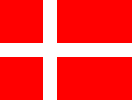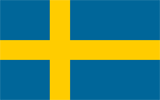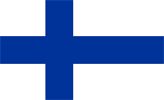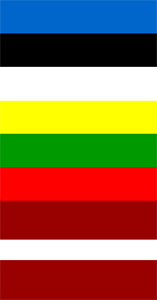Page contents:
Scand 445, Fall 2005
War and Occupation in the Nordic and Baltic Region
War and Occupation in the Nordic and Baltic Region
New Classroom: Executive Education 110
Required Texts
- Course Reader, available at AVE Copy. Table of Contents
- Turri, Antti. The Winter War: A Novel (2003)
- Werner, Emmy. A Conspiracy of Decency (2002)
Syllabus
Weeks 1-2: History, Literature, and WWII – Rise of Nazism
Begin to explore the relationship between history, literature, and the writer and to introduce the historical period and the geo-political region. Look at the rise of Nazi Germany and the race for domination of the North.
Wed. 9/28
- Timeline and Key Dates Lecture Notes
- Byron Nordstrom, “Norden and WWII,” p. 291 – 309 Lecture Notes
- Course goals and requirements
Mon. 10/3
- Hayden White, “The Historical Text as Literary Artifact” Lecture Notes
- Martti Häikiö, “The Race for Northern Europe,” pp. 53-97 Lecture Notes
- Film clips from “The World at War” etc.
Wed. 10/5
- Mark Mazower, "Hitler's New Order 1938-1945” from Dark Continent
- Film clips from Leni Riefenstahl, “Day of Freedom” (1935)
- See Pablo Picasso’s “Guernica” (1937);
- Excerpt (in class) from Virginia Woolf, The Three Guineas (1938)
- Letter #1 due
 Weeks
3-4: Denmark: Collaboration, Resistance and Rescue
Weeks
3-4: Denmark: Collaboration, Resistance and RescueInvestigate the occupation of Denmark by Nazi Germany in 1940-45, exploring various views on collaborative government policy and the role of the resistance movement. The reading includes letters from Hitler’s Berlin, written in 1940 by Danish writer Karen Blixen. This study is set in the context of current debates regarding Denmark’s official “policy of negotiation” with the Wehrmacht. We will also consider the historic 1943-rescue of Denmark’s Jewish population.
Mon. 10/10
Discussion Questions: Word | Acrobat
PDF
- Henrik Nissen, “Adjusting to German Domination,” 111 – 126**
- Isak Dinesen (Karen Blixen), selected “Letters from a Land at War” (1940/48)**
- Film: “Denmark: Living with the Enemy” (30 min)
Wed. 10/12
- Henrik Dethlefsen, “Cooperation, Negotiation or Collaboration?,” pp. 193 – 196.
- Hans Kirchhoff, “Denmark” in Resistance, pp. 93-124**
- From Kim Malthe-Bruun’s letters, “Resistance and Prison,”(1945) pp. 137 – 175**
Mon. 10/17
- Emmy E. Werner, A Conspiracy of Decency (entire)
- Documentary Film: “The Power of Conscience” (60 min.)
Wed. 10/19
- Tove Ditlevsen, “Oranges” (1948)**
- Henning Poulsen, “Denmark at War? The Occupation as History”, 98 – 113**
- (Begin introduction to Norway and Sigrid Undset)
- Letter #2 due
 Weeks 5-6: Norway: Occupation, Resistance, and the Quislings
Weeks 5-6: Norway: Occupation, Resistance, and the QuislingsExplores the occupation of Norway by Nazi Germany, considering the role of resistance fighters as well as “quislings” in the context of Norway’s postwar war-crimes trials. We will study the memoirs of important novelists Sigrid Undset and Knut Hamsun; the first who was forced to flee occupied Norway and the second who supported the Axis.
Mon. 10/ 24
- Sigrid Undset, excerpt from Return to the Future (1942), pp. 3 - 81**
- Flim clips/Invasion of Norway
Wed. 10/26
- from Andenæs, Riste & Skodvin, Norway and The Second World War, pp. 41 – 135**
- MIDTERM QUIZ (30 minutes)
Mon. 10/31
- Knut Hamsun, On Overgrown Paths (1948)**
- Clip from Jan Troell’s motion picture Hamsun (1997)
Wed.11/2
- Knut Hamsun, On Overgrown Paths, continued
- Ole Kristian Grimnes, “Occupation and Collective Memory in Norway”**
- [Documentary “Quisling” directed by Svein Rune Nyland (2005)]
- Letter #3 due
 Week
7: Sweden : Neutrality, Collaboration, and Humanism
Week
7: Sweden : Neutrality, Collaboration, and HumanismExplores the paradox of Sweden’s neutrality during WWII which has come increasingly into the spotlight during the past decade. We will also look at the role of Swedish humanitarian aid and the myth and legacy of Raoul Wallenberg.
Mon. 11/7
- Lecture by distinguished guest.
- Alf W. Johansson, “Neutrality and Modernity: The Second World War and Sweden’s National Identity” in War Experience, pp. 163-187**
- TERM PAPER ABSTRACTS DUE
Wed. 11/9
- Stig Ekman, “Skilful Realpolitik or Unprincipled Opportunism?” in War Experience, pp. 188 – 205.**
 Weeks 8-9 Finland at War: Literature and National
Identity
Weeks 8-9 Finland at War: Literature and National
Identity Considers the difficult position of Finland during the “Winter War” of 1939-40 (between the Soviet Union and Finland) and the “Continuation War of 1941-44,” when Finland was an ally of Nazi Germany. We will discuss a contemporary novel by Antti Tuuri depicting the Winter War, as well as Väinö Linna’s influential postwar novel, The Unknown Soldier (1954) which depicts the Continuation War. We will discuss the role of the Finnish wars in shaping national identity.
Mon. 11/ 14
- Guest lecture by Karoliina Kuisma; Introduction to Finnish history, language, and culture.
- Begin Antti Tuuri, The Winter War (2002)
Wed. 11/16
- Fred Singleton, “Finland in the Second World War”**
- Antti Tuuri, The Winter War (2002)
- Letter #4 due
Mon. 11/21
- Väino Linna, The Unknkown Soldier, Chapters I – II**
- Pekka Tarkka, “Love and War” and "Morale Crisis"**
- Clips from “The Unknown Solider” (1955), directed by Edwin Lane
Wed. 11/23
- Matti Klinge, “Finland and the Experience of War” in War Experience, p 114 – 129**
- Film clips: “The Winter War” (1988), directed by Pekka Parikka
 Week
10 The Baltic States: Tragedy, Memory, and Buried History
Week
10 The Baltic States: Tragedy, Memory, and Buried HistoryThe Baltic states faced two brutal occupying powers during WWII. We will survey the fates of Estonia, Latvia and Lithuania, occupied by Soviet troops in 1940, attacked and occupied by Germany in 1941, and re-occupied by the Soviets in 1944.
Mon. 11/28
- David Kirkeby, “The Tragic Years,” pp. 349-378**
- PEER-EDITING WORKSHOP (bring complete draft of research paper)
Wed. 11/30
- Guest presentation by translator Irena Blekys
- Dalia Grinkeviciute, “Memories: By the Laptev Sea,” pp. 653 – 665**
- TBA: Jan Kross, “Lead Piping” from The Conspiracy and Other Stories
- Letter #5 due
Week 11: Class Conference
During the final week, we will evaluate the course findings by presenting individual research papers in a “conference” organized into topic-specific sections.
Mon. 12/5
- Fourth-Annual UW Conference on War and Occupation in the North (Paper Presentations)
Wed. 12/7
- Research Papers and Course portfolios due
- Final quiz (30 minutes), evaluations, and class celebration.
Description
During World War II much of the Nordic and Baltic region was occupied by foreign military powers: Norway and Denmark by Nazi Germany and the Baltic States alternately by the Soviet Union and Germany. In alliance with Germany, Finland waged war against the Soviet Union in order to defend Finnish sovereignty. Sweden alone escaped war and occupation by claiming political neutrality. This course surveys these national destinies and explores the experiences and perspectives of writers and witnesses by means of fiction, memoirs, and documentary films. By studying historical circumstances and events alongside literature and memoirs, students will be able to analyze the ideological perspectives and narrative strategies in texts dealing with the war. A focal point in this year’s course will be the role and significance of writers and intellectuals who publicly professed a particular view on the war. Finally, the class will consider the role of historical scholarship and literature in shaping the postwar identities of the Nordic and Baltic nations.
Last modified: 10/12/2005 11:08 AM